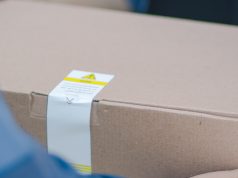Many Health experts and anti-tobacco organizations have spoken up about the consequences that would come about with the implementation of this tax, with many pointing out how as in the case of the TPD, including tobacco alternatives in this directive will lead to creating confusion in the consumers’ minds.
The New Nicotine Alliance (NNA), together with their associate and public health advocate, Clive Bates, have written an in depth briefing in order to point out the implications but also the possible opportunity that this directive revision may carry. Amongst the points mentioned are the following:
- Excise policies on reduced risk products can have a significant negative impact for human health and is inconsistent with EU requirements to make policy with a high level of health protection.
- The EU principle of ‘non-discrimination’ requires that products with very different characteristics are not treated in the same way – the vast difference in health risks means that reduced risk products must have zero or very low taxation relative to smoked tobacco products.
- There is an opportunity to create a regime which will incentivise use of the safer products.
- The risk is that poor policy will reduce this incentive, and so protect the market for smoked tobacco products.
- Excise duty is a ‘sin tax’ and switching to low risk products is a virtue to be encouraged, not a sin to be taxed.
- Our recommendations for low risk non combustible products are as follows:
- If they are included in the directive then a zero rate duty must be allowed.
- There should be a maximum rate set which reflects the very substantial difference in risk compared to smoked tobacco.
Health Benefits exceed revenue benefits
In an article on their website, the NNA also pointed out that there are no practical or principled grounds on which to justify applying such a tax on products which are helping millions quit smoking. More importantly, the organization pointed out “The value to health and wellbeing associated with switching from smoking to vaping will exceed any benefits arising from revenue collection.”
Hence the European Commission, European Council and member state tax authorities are being urged to take in consideration the importance of maintaining a balance between public health, revenue raising and administrative costs when it is time to take a final decision. “The institutions involved should conduct thorough impact assessments, take a hard look at the risks of causing harm to health and then think again about imposing excise duties on products that are already helping millions of Europeans to improve their health and wellbeing and have the potential to help millions more.” concluded the NNA
Voice your opinion
The public is urged to have their say by completing the consultation sheet which should not take longer than fifteen minutes. The deadline to fill out this survey is on the 16th of February and till then it is of utmost importance that this opportunity for interested parties to voice their opinion, is spread as much as possible.








